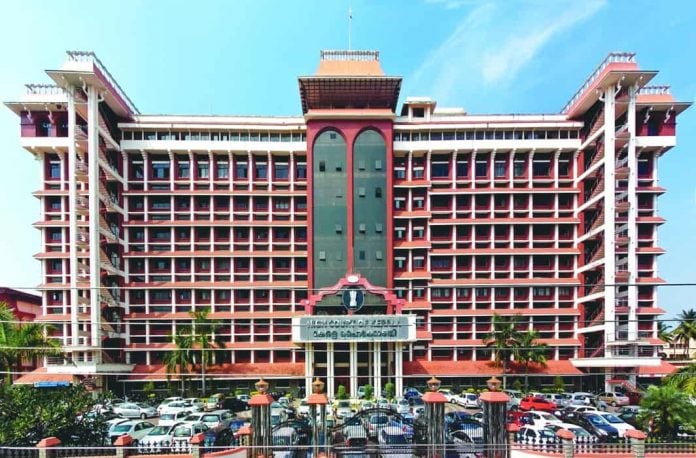The Kerala High Court on Monday directed the Director of Vigilance and Anti-Corruption Bureau (VACB), Thiruvananthapuram, to take immediate action on the three petitions made by a petitioner regarding the corrupt practices committed in the appointment to the posts of peon and secretary in the Karuvatta Service Co-operative Bank Limited.
The petitioner, V. Ramachandra Kurup, approached the High Court seeking directions to the respondents to initiate appropriate legal action on the complaint of the petitioner in accordance with law.
The Dy.S.P, VACB, Central Range, Ernakulam has filed a report dated 30.12.2019 in the writ petition, on behalf of the Director, VACB. It is stated in this report that no complaint dated 25.11.2017 has been received by the VACB. However, it is stated that the petitioner had made three petitions dated 07.11.2017, 13.11.2017 and 10.05.2018 before the VACB and these petitions were forwarded to the Additional Chief Secretary, Home and Vigilance Department, Thiruvananthapuram. It is stated that the petitions were forwarded so for conducting an inquiry in the matter through the internal vigilance of the department concerned. It is also stated in this report that, if the above inquiry demands further probe by the VACB, it would be conducted accordingly.
A. Rajesh , the Public Prosecutor, submitted that in view of the recently introduced provision Section 17A of the Prevention of Corruption Act, 1988, previous approval of the competent authority would be necessary to conduct any preliminary inquiry or investigation in the matter by the VACB.
A Single-Judge Bench of Justice R. Narayana Pisharadi, after hearing the counsel for the petitioner and respondents and Public Prosecutor, held that when a complaint is received by the Director, VACB, it eludes comprehension why it should be forwarded to the department concerned for conducting internal inquiry by that department.
The Bench referred the judgment of the Supreme Court in Lalita Kumari v. Government of UP: AIR 2014 SC 187, in which the Apex Court has explained the action which shall be taken, on receiving a complaint regarding commission of cognizable offences.
When a complaint alleging commission of a cognizable offence is received by a police officer, forwarding the complaint for conducting an internal inquiry by the department concerned is not contemplated under the law, said the Court.
Further, the Court found no basis for the submission made by the Public Prosecutor regarding the amendment to the PC Act, by which Section 17A was introduced, came into effect only on 26.07.2018. All the three petitions made by the petitioner before the VACB, which are mentioned in the report of the Dy.S.P, VACB, Central Range, had been made prior to that date. Therefore, no previous approval by the competent authority as contemplated under Section 17A of the PC Act is necessary for conducting preliminary enquiry in those petitions.
It was held in Ramesh v. CBI (2020 (4) KHC 220: 2020 (4) KLT 351), Kerala High Court has held that the amendment made to PC Act as per Act 16 of 2018 is only prospective in operation.
“The Director, VACB (the second respondent in the writ petition) is directed to take immediate action on the three petitions made by the petitioner, which are mentioned in the report dated 30.12.2019 filed by the Dy.S.P, VACB, Central Range, Ernakulam, in the light of the directions issued by the Supreme Court in Lalita Kumari (supra),” the order reads.


